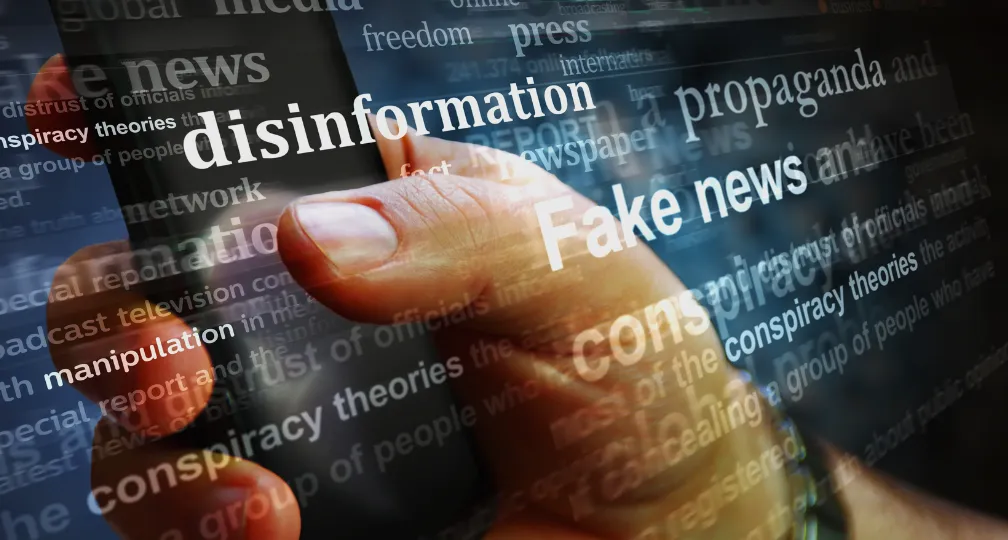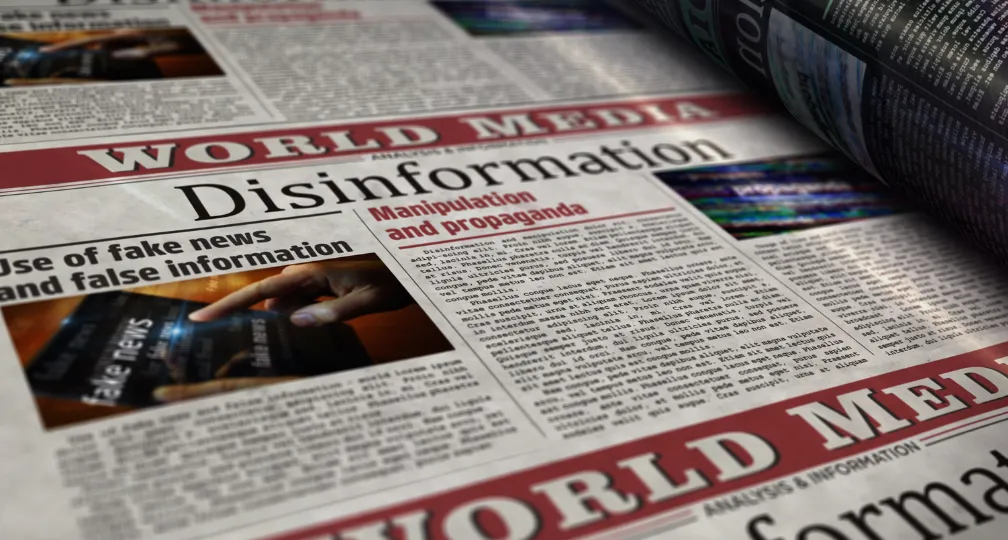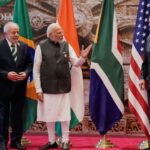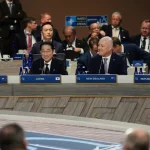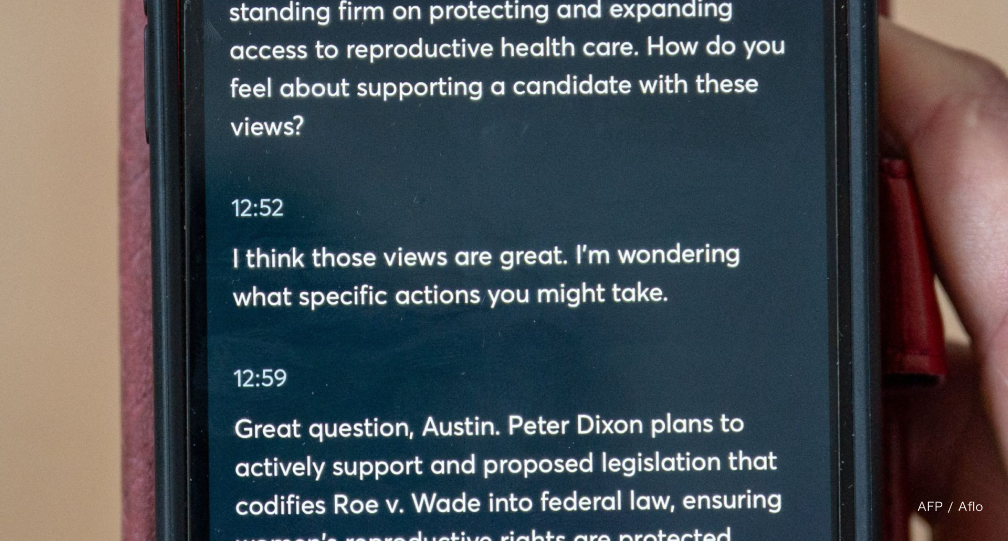Biden’s track record in boosting U.S. space security
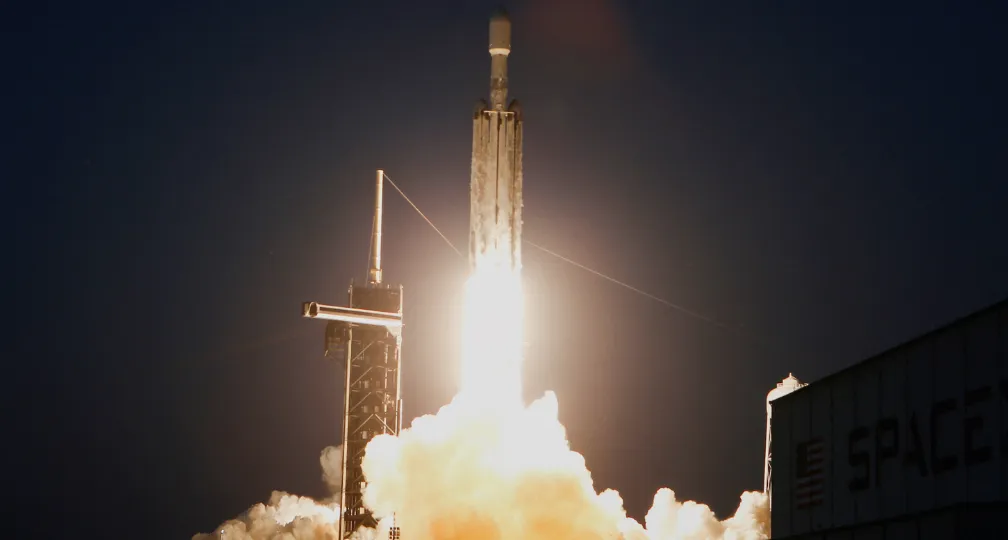
In February, Rep. Mike Turner, chair of the United States House Intelligence Committee, said that there was credible evidence of a “serious national security threat” — linked to Russia’s development of nuclear-armed satellites, according to news reports.
If true, this would pose a serious danger not only to space systems but all activities on Earth. In fact, the security environment in space — where “space” refers primarily to the Earth’s orbit where satellites operate — is at a critical juncture.
The U.S. has historically dominated the space field, and President Joe Biden's administration has focused on areas such as international cooperation and sustainability, i.e., the conditions that allow humanity to continue utilizing the space environment.
But growing competition with China and the confrontation with Russia over Ukraine have cast a long shadow over space security as terrestrial tensions echo up above.
A multifaceted approach
Since the 2000s, China and Russia have been developing several types of weapons capable of attacking space systems. This trend has become more evident in recent years, fueled by the clash between Beijing and Moscow on one side and Washington on the other.
Notably, in November 2021, Russia conducted an anti-satellite missile test that destroyed one of its own satellites in low Earth orbit, generating a large amount of debris. And in February the following year, just before launching a full-scale invasion of Ukraine, Russia carried out a cyberattack on the Viasat satellite system, partially disrupting Ukraine’s communication capabilities. In addition, according to reports, Chinese and Russian satellites have repeatedly approached Western countries’ geostationary satellites.
In response to these threats, the U.S. designated space a “warfighting domain” in the 2018 National Defense Strategy, during President-elect Donald Trump’s first term. In 2019, the government established the U.S. Space Command, a combatant command responsible for space operations, and the U.S. Space Force, a military branch that organizes, trains and equips armed forces.
Overall, there has been continuity between Trump and Biden’s space policies, though the outgoing administration has emphasized other aspects too. For example, the Pentagon pledged to adhere to the “tenets of responsible behavior in space,” aiming to enhance the safety of space operations, including mitigating debris.
Following on from this, in April 2022, Vice President Kamala Harris announced that the U.S. would no longer conduct direct-ascent anti-satellite missile tests. Washington urged other countries to do the same — with Japan following suit in September that year — including submitting a resolution to the United Nations General Assembly calling on all member states to make similar commitments. The resolution was adopted with 155 votes in favor, though nine countries, including China and Russia, opposed it.
On top of multilateral diplomacy, the Biden administration initiated bilateral space dialogues with France, Germany, Italy, Singapore and the Philippines, while continuing ongoing ones with Japan and the European Union. In January last year, during the “two-plus-two” ministerial meeting, Washington and Tokyo confirmed for the first time that Article 5 of the U.S.-Japan security treaty could apply to the space domain, under certain circumstances.
The U.S. has also addressed threats more directly. The Space Force is shifting from operating a small number of large satellites to using a distributed architecture with several hundred small satellites in low Earth orbit, enhancing space systems’ overall resilience against attacks.
In addition, Washington has increased its cooperation with allies to utilize their capabilities. For example, Japan will launch next-generation quasi-zenith satellites — the Japanese version of a regional GPS — with hosted payloads provided by the Space Force. This will be the first time that U.S. military payloads are launched aboard foreign satellites using a foreign launch vehicle.
Finally, the U.S. is believed to be developing offensive counterspace capabilities to neutralize its adversaries’ space systems. While ground-based anti-satellite jamming devices are the country’s only known offensive space capability, the Space Command has reportedly put “space fires” — designed to boost its capacity to target adversary space systems — at the top of its list of priorities for fiscal 2027.
Of note is that the Space Force’s current doctrine advocates for “responsible counterspace campaigning” to avoid generating debris even when attacking enemy space systems.
Three challenges
In short, the Biden administration has employed a combination of diplomatic and military responses to growing space threats. However, the U.S. faces even more complex challenges as the security landscape evolves.
China is rapidly improving its space capabilities, particularly military ones. While the U.S. has so far focused on protecting its own space systems, it can no longer ignore the fact that China’s terrestrial military operations increasingly rely on space systems. The U.S. is thus compelled to develop and deploy capabilities aimed at disrupting or neutralizing Chinese military satellites — without destroying satellites and, therefore, harming the space environment.
Also, commercial satellite imagery and communication services play a significant role in military operations, as seen in the Ukraine war. Given their operational value, commercial satellites are increasingly vulnerable to becoming military targets: Commercial space services not only support U.S. military operations but have become essential to the daily lives of American citizens. It is therefore important to clarify the extent to which the government is responsible for protecting these systems from threats.
Furthermore, Russia’s space activities are declining significantly, posing the question of how to manage relations with a weakened Moscow. For example, last year, the U.S. conducted 107 space launches, China carried out 63, but Russia’s were only 19.
The decline of Russia’s space industry has been exacerbated by the loss of business with Western countries since the start of the Ukraine war. As Russia relies less on space activities (and has less to lose) in its confrontation with the U.S., Moscow may be more inclined to resort to extreme measures that threaten the overall use of the space domain. The unconfirmed reports of Russia’s development of nuclear-armed satellites must be viewed in this context.
All these challenges stem from structural changes in the balance of power between states and who owns emerging technologies, putting the U.S. in an increasingly complex position.
Japan’s response
Japan should closely monitor the direction of America’s space policy under the second Trump presidency: The National Space Council is the body responsible for managing and coordinating the government’s space policies and has been relatively inactive during the Biden administration (a sign either of insufficient advances or steady progress from the previous administration’s work). If needed, the two countries should realign their space policies.
But how should Japan respond? While the challenges it faces are not the same as America’s, given differences in capabilities and reliance on space systems, Tokyo needs to work with the Trump administration to ensure the sustainable use of space and protection of space systems.
This could lead to continuing efforts to establish and maintain norms of behavior (such as banning intentional debris generation and the deployment of weapons of mass destruction in space); enhancing Japan’s space situational awareness capabilities and strengthening this information sharing with the U.S. to monitor normative compliance; and clarifying the circumstances under which attacks on American or Japanese space systems, including commercial services, would trigger Article 5.
As the complexity of terrestrial geopolitics extends into space, Japan should not view threats and challenges in this domain as isolated issues. Instead, it needs to integrate its space policy into a broader national security strategy to expand its range of options for addressing challenges in orbit and on Earth.
(Photo Credit: Reuters/Aflo)
[Note] This article was posted to the Japan Times on November 21, 2024:
https://www.japantimes.co.jp/commentary/2024/11/21/world/us-biden-space-policy/

Geoeconomic Briefing
Geoeconomic Briefing is a series featuring researchers at the IOG focused on Japan’s challenges in that field. It also provides analyses of the state of the world and trade risks, as well as technological and industrial structures (Editor-in-chief: Dr. Kazuto Suzuki, Director, Institute of Geoeconomics (IOG); Professor, The University of Tokyo).
Disclaimer: The opinions expressed in Geoeconomic Briefing do not necessarily reflect those of the International House of Japan, Asia Pacific Initiative (API), the Institute of Geoeconomics (IOG) or any other organizations to which the author belongs.


Visiting Research Fellow
Kota Umeda is a visiting research fellow in Institute of Geoeconomics at International House of Japan. Mr. Umeda has more than eight years of experience working in the space industry, primarily focused on researching U.S. space policy, and he performed numerous research projects. From 2019- 2022, he had an assignment in Washington D.C. as a liaison officer to work with the U.S. government, industry, and other stakeholders to promote Japan- U.S. space cooperation. Prior to joining the space sector, Mr. Umeda worked for Japan Ministry of Defense for five years, where he served as a researcher for military activities surrounding Japan as well as experienced in formulating arms control and disarmament policy at the Ministry. Mr. Umeda holds a Master of Laws from Kyoto University and a B.A. in Policy Studies from Kwanseigakuin University.
View Profile-
 Will Trump change course on critical and emerging tech?2024.11.26
Will Trump change course on critical and emerging tech?2024.11.26 -
 A Dangerous Confluence: The Intertwined Crises of Disinformation and Democracies (Executive Summary)2024.11.20
A Dangerous Confluence: The Intertwined Crises of Disinformation and Democracies (Executive Summary)2024.11.20 -
 A Dangerous Confluence: Introduction2024.11.20
A Dangerous Confluence: Introduction2024.11.20 -
 Chapter 1 Hungary: Media Control and Disinformation2024.11.20
Chapter 1 Hungary: Media Control and Disinformation2024.11.20 -
 Chapter 2 Disinformation in the United States: When Distrust Trumps Facts2024.11.20
Chapter 2 Disinformation in the United States: When Distrust Trumps Facts2024.11.20



